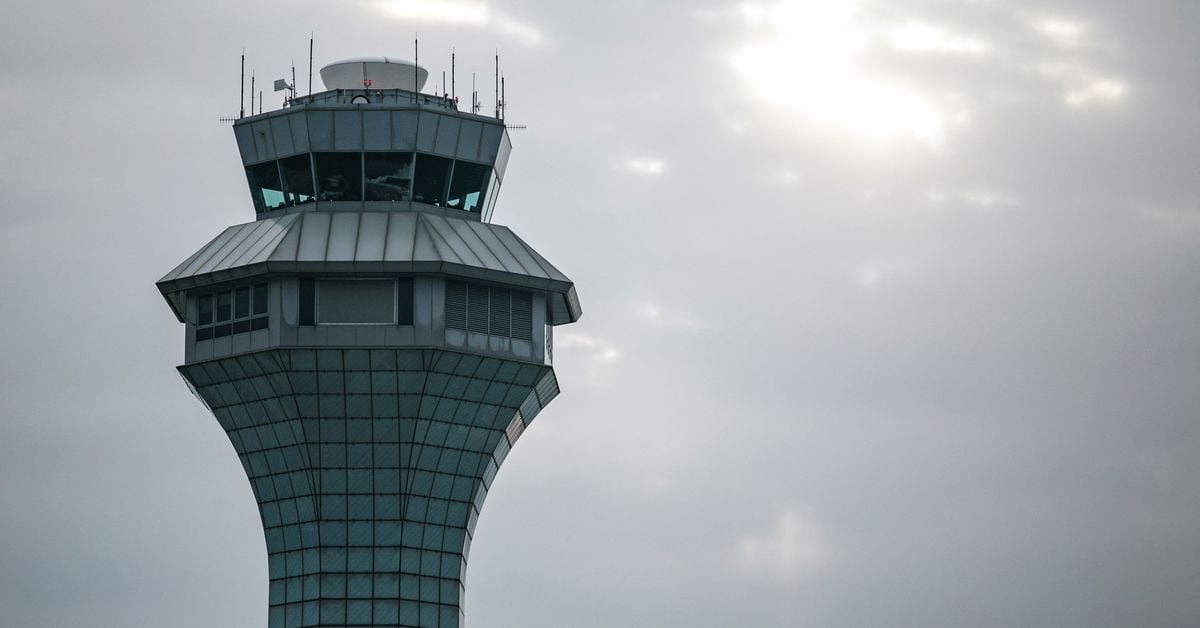A view of the air traffic control tower at O’Hare International Airport after the Federal Aviation Administration (FAA) ordered airlines to pause all domestic departures due to a system outage, in Chicago, Illinois, U.S., January 11, 2023. REUTERS/Jim Vondruska/File Photo Acquire Licensing Rights
WASHINGTON, Nov 30 (Reuters) – The Federal Aviation Administration (FAA) on Thursday said it is proposing to extend the cockpit voice-recording requirement to 25 hours for all new airplanes from the current two-hour loop.
The National Transportation Safety Board (NTSB) has been pushing for the change since 2018, and the United States is behind much of the world in the requirement for commercial planes. The voice recorder captures transmissions and sounds in the cockpit, including the pilots’ voices and engine noises and can be crucial in understanding why airplane crashes occur.
Europe has required new airplanes to collect 25 hours of cockpit voice recordings since 2021. FAA Administrator Mike Whitaker said the change will “give us substantially more data to identify the causes of incidents.”
In 2016, the International Civil Aviation Organization (ICAO) adopted a new standard calling for the installation of recorders capable of recording the last 25 hours on all new aircraft starting in 2021.
The issue has taken on new urgency after a series of near miss incidents raised alarm about U.S. air safety. The NTSB has opened seven investigations into near-miss incidents since January, including some that could have been catastrophic.
After one runway incident, the NTSB said the cockpit voice recordings in both planes were overwritten and not recovered because the devices record only two hours.
NTSB Chair Jennifer Homendy praised the FAA announcement on Thursday.
“More data will not only help identify causes but better enable operators to address any safety deficiencies,” Homendy said.
The NTSB has also called for the FAA to mandate retrofitting existing airplanes with new cockpit voice recorders, but the agency did not agree, saying the costs would be significant at $741 million versus the $196 million incremental upgrade costs under its proposal.
The FAA will take comments until early February and would make the requirement effective one year after the final regulation’s adoption.
When cockpit voice recorders were first implemented in 1966, they could only record 30 minutes, the FAA said.
Reporting by David Shepardson
Editing by Bill Berkrot
Our Standards: The Thomson Reuters Trust Principles.
Read the full article here





